If there's a place where scholarship and smart ideas are spread, then Dr. Anthony Jack has probably been featured there.
In this episode, I chat with Dr. Anthony Jack — the Assistant Professor of Education at the Harvard Graduate School of Education and the author of the book, The Privileged Poor: How Elite Colleges Are Failing Disadvantaged Students, about his journey to the testament that “even undreamt dreams come true” and how communication is pivotal in creating accessible content, both written and spoken.
Anthony’s TEDxCambridge talk from 2019 created conversations in a time when acceptance scandals dominated the headlines. He was, and is, the expert on inequality in higher education.
His ideas have been on the front page of the New York Times, The Wall Street Journal, the Boston Globe, the Atlantic, the New Yorker, the Chronicle of Higher Education, the Huffington Post, among others.
His book, The Privileged Poor, continues to create conversations around access and inclusion in higher education. And while one reviewer of his book said, “It is so well written that anyone can pick it up and understand it. There's no specific academic language in which to signal to other academics.” His take is, “If my mama can’t read it; I don’t wanna write it.”
“ I have a general rule. If my mama can't read it, I don't want to write it. Meaning, I don't want to be one of those academics who only other academics who study something related to what I study can understand it.”
[00:00:00] Anthony Jack: I remember the first time my stepped foot on the Amherst College campus. It was with my mother and brother. We drove up from Miami. The flights were too expensive and besides, we were all afraid of flying. Anyway, we pulled up to Pratt Dorm, got out of the car,
[00:00:19] Anthony Jack: took deep breaths of fresh country air. But then my brother starts to laugh. He saw a little critter run across the yard. He said, Tony, Y'all pay how much for school here? And y'all got rats, y'all. It was a chipmunk. We had never seen a real one before. His joke barely hid his excitement. It did nothing for his nerves.
[00:00:45] Anthony Jack: We were in another world.
[00:00:49] Mike: That's the opening from a 2019 TEDxCambridge talk by Dr. Anthony Jack. He's an assistant professor at the Harvard Graduate School of Education and the author of the book, the Privileged Poor, how Elite Colleges Are Failing Disadvantaged Students. His work's also been featured in the New York Times, the Boston Globe, the Atlantic, the New Yorker, the Chronicle of Higher Education, the Huffington Post, the National.
[00:01:12] Mike: On and on and on. If there's a place where scholarship and smart ideas are spread, then Dr. Anthony Jack has probably been featured there. . This episode is far ranging. Not only do we talk about his scholarly work, we talk about what it's like for college students and and why this topic needs to be out there, but we also talk about imposter syndrome, where that really comes from and how we actually can get over it.
[00:01:38] Mike: He also goes into a little bit behind the scenes of how he created that TEDx talk, what went into the rehearsal and carrying the kind of emotion he needed to pull it off on the Boston. Opera house stage. And let me just say I'm a little bit biased because I was one of the people that picked Dr. Anthony Jack and I was also the executive producer of the event that year.
[00:01:57] Mike: So when I say I think his talk is one of the best I've ever heard, yeah, I might be biased, but I encourage you to check it out for yourself and decide. Here's my interview with the very charming Dr. Anthony Jack.
[00:02:09] Intro: So you have a story to tell and you wonder how to own the stage and give that killer speech that will captivate the masses.You don't just wanna speak to them, you want to transform your audience. Welcome to the Mike Drop Moment. Bold conversations about public speaking, storytelling, and business that give you real world valuable takeaways so you can craft a speech, a story, and a life that the world can't stop talking about. It's time to find your mic Drop moment. Here is your host, Mike Ganino.
[00:02:41] Mike: Sometimes you watch someone living their life and doing the things they do in their life and the, the, what feels like their, their current passion or their current topic is actually being played out when you watch it, it's this kind of meta experience.
[00:02:55] Mike: And I had that for you watching you and I had this unique perspective because I was backstage at TEDxCambridge when you gave your TEDx uh, Cambridge speech in 2019. Teen and so I'm backstage cuz I was MCing watching you from the side, hearing the audience respond to you, uh, checking in with what you're doing.
“These are people who have really kind of world changing ideas, stories, and a vision for how things should be. And it's been really, really rewarding to support them in that work.”
[00:03:13] Mike: I'd heard the speech a million times and it was interesting because in a way it felt like a very meta experience for you as well when you talked about the kind of. The interesting thing of you being on stage in an opera house as a Harvard professor. Do you remember that moment?
[00:03:30] Anthony Jack: Yeah. I mean, being on, the interesting thing was out of all the years I've been at Harvard, so I came here as a graduate student, um, and now a professor.
[00:03:41] Anthony Jack: So I came here in 2008. I had never been. In the Opera House until I went to go see Hamilton that same year, right? And so to turn around. And then the next time I stepped foot on the stage, mere months later, I am on the stage the act talking about my own trajectory from being a low income, uh, uh, uh, you know, a low-income college student who came from a segregated neighborhood.
[00:04:11] Anthony Jack: Now giving a talk and identifying himself as a hard professor on a stage where I literally just saw the biggest play since only God knows what it was. It was surreal. It was otherworldly to be, to come out and and know that I had just been sitting in those seats. But now I get to share a message about something that I have invested the last decade of my life working.
[00:04:39] Anthony Jack: Trying to Perfect so that I can have a conversation about how inequality shapes, how students like myself make it to college, but not just make it to how we make, how we make it through. And this is
[00:04:53] Mike: based on the, the talk and the idea you're sharing is, is in your book The Privilege Poor, which also came out last year.
[00:04:59] Mike: So 2019 was like the, a big year for Anthony Jack.
[00:05:02] Anthony Jack: It was, it was a huge year. It was absolutely huge. Um, you know, I used to get kicked out of libraries. I used to get followed in libraries back home to the point I never felt comfortable in the library when I went to college. Right? Because when you are poor and black and you're from Coconut Grove in Miami, you have to cross McDonald's.
[00:05:30] Anthony Jack: to get to the nearest library. And even though it was, the neighborhood still had the name Coconut Grove, you definitely knew one was the white section and the other was the black section. So they knew who you were, they knew where you were from, from the moment you stepped foot in the library and they followed you or they surveilled you in a certain way.
[00:05:49] Anthony Jack: And I never felt really com I never felt really comfortable in the library. So now to have be to become an author, And know that my, my contribution, my work, me, not just my work, but me as a person is on the shelf of many libraries across the country, is a surreal experience in 2019, brought that reality, um, brought that into reality in a way that, that I didn't quite think about until I was writing the acknowledgements.
[00:06:20] Anthony Jack: And people will always say, when you write a book, the last thing you really write is your acknowledgements. And it's that reflective moment of the journey, the process and the “what next.” Um, it's all in, is all in captured in that moment. And it was just, yeah, 2019 was, was one of the wildest years for me to.
[00:06:45] Mike: So the book, so you saw Hamilton, the book came out, you started getting a ton of press. I mean, if you go and Google Anthony Jack, you are the Anthony Jack that pops up and it is everywhere. I mean, there are, there's, there's Washington Post, there's every major media outlet, every great, uh, every great space that talks about big, smart ideas.
[00:07:09] Mike: Has Anthony Jack on it? When you put the book out, did you…How did you get ready for that ? How did you prepare for like, that kind of thing of, you know, cuz there's one thing of going, like, I'm a professor and I'm, I'm doing research and I wrote a book on it. There's a much different thing to say. Now I have to go take those ideas that I filled a book with, that I filled my, you know, dissertation with, and I have to go be able to talk about them in two and three minutes.
[00:07:34] Mike: Or the case of TEDxCambridge 12 minutes. How did you prep for that?
[00:07:38] Anthony Jack: The thing is, you know, on the macro level, I did not know what to expect, right? Mm-hmm. You know, my advisor, um, William Julius Wilson, who was a preeminent sociologist, he just looked back and said, I told you so. Like he, he had the faith in me. Not just to finish graduate school and write a book, but he had the faith in me that I would produce a big book, a conversation starting book.
[00:08:03] Anthony Jack: I was just trying to graduate, you know, that was my goal. My goal was to graduate. And I say that because,
[00:08:13] Anthony Jack: as a first gen, every step I take from now from the moment I entered Amherst College in 2003 was uncharted territory. No one could give me the roadmap to what was next. Day-to-day, month to month, even hour to hour. No one can give me the roadmap. And so I try to have some principles for myself, and when it comes to my writing and my engagement,
[00:08:40] Anthony Jack: I always want to remember who I was writing for. Right? And so I have a general rule. If my mama can't read it, I don't want to write it. Meaning I don't want to be one of those academics who only other academics who study something related to what I study can understand it. Because to me that gets into way of.
[00:08:59] Anthony Jack: That's getting in the way of communicating one's idea. I don't want to just write, I want to communicate. And so I try to do that with my speeches as well. The part that I wasn't ready for is that people would be vibing with those speeches and vibing with the way in which I wrote it. Um, the way in which I speak the cadence and I like to have fun, and so I was less prepared for the reception.
[00:09:25] Anthony Jack: and I think that's what kind of took over everything than, um, than the actual, the actual speech writing and just trying to have fun with what I do. Because, you know, being a professor as many positions, it's all consuming, right? There is no, there's no clock to, there's no clock to check in out of.
[00:09:46] Anthony Jack: Like, I, I think we need to do more to, to ins to, to have that in our lives. Like some no time, some downtime. Um, but it really can be all inclusive in the sense that, um, you know, we read books. That's part that is work. We read books for work, we answer emails, we give talks, we travel the country and all those things.
“ I view imposter syndrome as babysitting other people's insecurities. Because when you have imposter syndrome, it is about either a person or a system saying, ‘because of who you are or what you are, you probably shouldn't be here.’”
-
[00:10:07] Anthony Jack: But one thing I did try to do in. And expand this message is, um, this summer was also very big because right after, you know, um, we finished up with TEDxCambridge, um, I got an email from the New York Times magazine and they wanted me to do a piece, um, related to the, related to the work, and they wanted it to be adjacent to the book.
[00:10:36] Anthony Jack: So they didn't want something on the book where I used the stories of my students. They wanted it to be right next to it. Like, what, what, what larger message do you want to talk about regarding poverty in higher education, inequality in college? What larger message and I that. The TEDx talk and that New York Times magazine piece were the two most terrifying academic experiences I've ever had because at once with TEDxCambridge, you're on stage with that.
[00:11:10] Anthony Jack: You know, one script, one shot, deliver your message, and it's you on Front Street. Both the New York Times magazine piece, it was probably the most open I've been about my experiences and my most critical piece of writing about certain aspects like the college admissions process, um, the academic scandal and things like that.
[00:11:34] Anthony Jack: And, but I try to keep the principles at, at the heart. Like I want it not to be something that is just written. I want something that can be communicated. And there's a difference between just writing well and communicating. Communicating is when you actually take your audience into consideration. And I wanted something to be accessible so that when I write,
[00:11:59] Anthony Jack: that people aren't surprised that on Tuesday, American Conservative Magazine would do a front, a front page review of my book, and on Wednesday, the New York Times would use my, my writing as the lesson of the day. Which actually happened like, you know, in 2019, literally 24 hours apart.
[00:12:17] Anthony Jack: The American Conservative magazine and the New York Times both covered their research saying very similar themes as it engaged the work because there was no room for miscommunication. Like what was there was written in a way that was accessible. So whether you liked it or didn't like it more than, was the issue more than if you understood it or did not understand it.
[00:12:40] Mike: right? Because one of the challenges so often with, with academics is they write , they write in journals for each other, but the rest of us don't ever learn like the smartest ideas, the, the, the things that could really change the world we're not hearing about because they're so, they're written in a way that doesn't connect.
[00:12:56] Mike: So when you wrote this, when you wrote the article for the New York Time magazine, because in the book you do such a great job of, of separating your experience from what you're doing. And that that's your job as a researcher, right? Is to say, “I need to watch what's going on and I need to report and research, and I, and I have to stay outside of it.”
[00:13:19] Mike: But in this article, you, you, you did share more of your personal story. What was that like? Because in The Privileged Poor, and I’d imagine in your research, you had done a, a, a really great job of stepping outside of it. And with the TEDx talk and this New York Times piece, you used your own story to help highlight this.
[00:13:38] Mike: How was that?
[00:13:40] Anthony Jack: Scary. That's the word that comes to mind because when you begin to let… it was, um, two part scary, one part funny. I say one part funny is because my mom and I, my family and I in general, had some real big laughs. So in the piece I talk about, you know, growing up we didn't always have – the Thursday, the Wednesday and Thursday before payday were always the toughest days.
[00:14:09] Anthony Jack: Yeah, because there was just no money. And I talk about, you know, going to McDonald's on Wednesdays because they had 29 cent hamburgers and 39 cent cheeseburgers as a special in the nineties. And that was sometimes how we made do, because it was cheaper to go and get 15 or 20 hamburgers and only spend seven or eight bucks, right.
[00:14:30] Anthony Jack: Than trying to go to the store and you didn't have all the ingredients, all that kind of stuff – we made do. And my mom and I laughed. We'll never forget, we ordered like 25 cheeseburgers one time and the young lady told us to go outside and wait, she'll bring it to the car. And she said, and she came back and she just threw the bag in the car and was like, “the hot meat melts of cheese.”
[00:14:52] Anthony Jack: And to this day, if I call my mom and tell her “the hot meat melts cheese,” we both start to laugh. Right? So it was, it was a way of, of going back to moments that, at the time, we couldn't laugh, right? Because that was life and that was the moment that we just had to deal with. Um, but, but realizing how far we have come, but also some of the still challenges that we still face.
[00:15:19] Anthony Jack: But the scary part is when you allow people to have those kind of stories, those kind of connections to your past. You wanna make sure that you write it in such a way that the engagement is respectful, because some people will then begin to try to use you as a poster child for whatever campaign they want to have, or will try to undercut your message by using your own story against you.
[00:15:48] Anthony Jack: And so for me, I want to write it in such a way that. Not to, to, to know that those people are out there, even as my main goal was to have this piece be something that at once a high school senior can pick up and relate to, but equally important a college administrator can pick up and learn from.
[00:16:16] Anthony Jack: Mm-hmm. . And that was the balance I was trying to take. Like who. Who, if I could have read something like this in 2002 right before I left for college, I would've been better prepared to go. But then also in 2002, if someone would've written something like this, somebody at Amherst would've been better prepared for me once I arrived.
[00:16:36] Anthony Jack: And that was the balance that I was trying, that I was trying to, to, to strike. And that's why it was scary, because to miss either one, I would've felt that I wasn't successful in getting my message across.
[00:16:50] Anthony Jack clip from his TEDxCambridge talk: “So, yeah. Me. Here. A Harvard Professor, in an opera house? It’s a testament to the fact that even undreamt dreams come true.
[00:17:00] TEDxCambridge Audience cheering: Woo!!!
[00:17:08] Anthony Jack clip from his TEDxCambridge talk: I'm the proud son of a middle school security guard. The brother of a janitor. Both hardworking, but neither college educated. I'm from a poor segregated community in Miami that even my local newspaper called, “A Place Time forgot.” There were often more struggles than celebrations. High school was the finish line.
[00:17:31] Anthony Jack clip from his TEDxCambridge talk: When I was growing up, there were only three Ivy League schools: Harvard, Yale, and Princeton. And the only reason why Princeton makes the list is because of the fresh Prince of Bel Air.” {audience laughter}
[00:17:47] Mike: In, in the world of theater. You know, we could talk about the fourth wall. The fourth wall is that one in between you and the audience. So in the show, Hamilton, right. They don't talk to the audience really. They may be looking at the audience, but they're not talking to them. And the fourth wall is when you kind of look at the audience and you have like a dialogue with him.
[00:18:06] Mike: I think breaking the fourth wall as a researcher must be a frightening thing sometimes.
[00:18:10] Anthony Jack: Mm-hmm. It is. And, and, and, and it's especially troubling of an experience for a person of color, a woman, someone who's queer or some combination thereof. And the reason why is because we are, one, if you are any of those categories, you, you can check off any of those boxes,
[00:18:30] Anthony Jack: They're gonna assume that you only study those boxes, right? So if you're black, you study racism. Right. It's like, so it's so quick, right? In the minds of mainstream academics, oh, you're a woman. What, what issue facing women do you study? Right? Like if you're right. So, but then at the same time, they make that assumption, but then they also devalue what they call ME search, right?
[00:18:53] Anthony Jack: M-E search, right? You just research yourself. You don't really do real research. You're just using academia and your degree to basically treat it as therapy. Mm-hmm. And here I am, a first generation college student who's, who grew up in a low income household, who's black, who studies first generation college students of color.
[00:19:13] Anthony Jack: Right. And so, and, and so that's on the one hand where you have to guard against that. So in some respects you have to be like Dubois, where you have to be even more critical and even more empirical in your approach to social science research to guard against the already discounted way, the way in which they already are gonna discount you.
[00:19:33] Anthony Jack: But here's another thing, and this is where the old guard versus the new guard come in. As a young scholar, to get the attention that I have received in the New York Times, Washington Post, National Review, Wall Street Journal, CNN, and all these places. You have some people who are actually disappointed, angry, look down upon, look down upon me for too much attention in the media and in the public.
[00:20:05] Anthony Jack: Right? And some younger scholars go against that. And so when you are being vulnerable with such stories, You also have to realize that there are going to be some people who are going to discount your research even more because too many people like it. I just gotta review back, and I had to laugh because someone said that “one of the strengths of the book is also its weakness.”
[00:20:33] Anthony Jack: “It is so well written that anyone can pick it up and understand it.” And I'm just like, wait, how is that a weakness? Like I had to laugh because I, I then I read the next sentence and was like, “there's no specific academic language in which to signal to other academics.” I'm just like, wait a minute.
[00:20:56] Anthony Jack: So anyone who picks it up can understand it, and that's a problem? Cause I don't speak to other academics? I'm just like, you know what? You, you know, you're damned if you do, damned if you don't. And I'm just like, I'd rather, and, and, and the last thing she, the last thing the reviewer said, and you'll find this hilarious.
[00:21:15] Anthony Jack: She said, “I'm sure that it was more accessible and profitable, and I'm obviously like that's when the ego gets in the way of good communication, right? You are worried about how many copies the book sold rather than worrying about the fact that that number of people, however many copies were sold, are now people who are engaging with empirical social science research.
[00:21:38] Anthony Jack: But you're so worried about it being profitable, you're not actually worrying about it being accessible and, and actually transforming university policies and practices.
[00:21:49] Mike: And and to assume that that was the reason you wrote it the way you did.
[00:21:52] Anthony Jack: Exactly. Like, my rule is my, if my mom can't read it, I don't wanna write it.
[00:21:56] Anthony Jack: If that is a, if that is a successful mantra for selling over 20, you know, like academic books don't sell as much, but to go into my fourth printing within nine months of the book coming out, did I script that? Was that my goal? No. Is my press happy about it? Yes. Am I happy about it? Absolutely. But that wasn't the goal.
[00:22:16] Anthony Jack: I don't write for other academics. Like why, like Shamus Kahn, who's a sociologist at Columbia, he has, he said most, one of the most beautiful things I've heard. He was like, “Yeah, I could have used board juice concept of habitants, but I just wanted to use privilege instead because people understand what privilege is.”
[00:22:37] Anthony Jack: No one understands what habitants is. Because habitants has – and not to be geeky out – but in, in one book, this person uses about 14 definitions for habitants, just to say the set of behaviors that are ingrained in one's world. Right? Shamus was like, “In my context, that's privilege. So why would I use a term that alienates people?”
[00:23:03] Anthony Jack: It makes people feel that they, they can't understand what's going on. When I can use a term that actually is accessible and that gets the message across, it allows me to really dig deeper without having to give people a 40-page history lesson over a confluent term. Why would I do that? My book is like I, again, I wanted a high school student to be able to pick it up and be like, “Wow, okay. I'm a little bit more ready now.” And a college administrator to be like, “Oh wow. I have some more work to do before my next class gets on campus.”
[00:23:35] Anthony Jack: And that's actually what's happening. And to me, that is a sign of good research, when you are able to look out upon the social world. Right? And understand what's going on. Get, a handle on the, the reality that we have and say, “Hey, there are some things that we can adjust to reduce inequality.”
[00:24:01] Anthony Jack: There are some things that we can do to make the, make this institution, this business, this school, this afterschool care program, um, you know, this museum, just a little bit better for a larger number of people. Why is that a bad thing? Because to me it's not.
[00:24:21] Mike: Well, and there's this, there's this. There's this other side of that that's like, is using language, uh, using language that, that creates distance.
[00:24:32] Mike: And using, using ideas that are, uh, that we, that we try to separate from what's going on, is another way where, I mean, the whole idea of… Not the whole idea, but at the core, The Privileged Poor is about people that get, people that get access to, uh, to worlds, right? So for example, you went to a, you went to Gulliver in your last year of high school? Or two years?
[00:24:59] Anthony Jack: My last year.
[00:25:00] Mike: So this is a, this is kind of a, a fancy prep school of sorts, which helped you, uh, helped you figure out that like, “Oh, wait, now I wanna go to Amherst and now I'm in this world” where a couple years before that might not have been something you had thought about, but then you get to Amherst or a student gets to a school and it's like, “Wait, oh, I don't, I, I've never seen this world before.”
[00:25:19] Mike: This is a new kind of world. And you talk about also the, um, uh, you talk about, that space there. And I think that sometimes the, the use of words that separate us from the audience is also a way to control who gets access.
[00:25:35] Anthony Jack: Yes. And I think we need to, I mean, part of the reason why we are in some of the, we think about politics today and the device that we have.
[00:25:49] Anthony Jack: You know, the fact that we are questioning some fundamental truths that Ms. Frizzle taught us, right, from Magic School Bus. The fact that we are even questioning some of the lessons that we have, that we have learned as truth from, uh, from elementary school is, is, is partly because the, the, there is this bright boundary between the producers of information and the consumers, because oftentimes we have gotten accustomed to,
[00:26:17] Anthony Jack: just talking to ourselves that we only know how to talk to ourselves. Now, I'm not trying to say that's the reason why we have the, the current political climate, the current political leaders, but I'm saying part of the process in which we, you know, we don't know how to, we don't know how to, a lot of academics don't know how to communicate with anyone who does not have the same credentials.
[00:26:44] Anthony Jack: Um, And that's something that, you know, people have been talking about for a very long time. And, and I think we're trying to address it now, but for me, when I write, I didn't grow up in, you know, you know, SAT word families and GRE families and LSAT families who, you know, have, you know, invested money in these things.
[00:27:04] Anthony Jack: Like I write simply. James Baldwin has a beautiful, has a beautiful way of putting it, he said for a writer, “You should write a sentence as clean as a bone.” Right? Don't try to, don't try to put the whole idea on one sentence. Don't try to overload everything into this overly wordy, extra-long; I'm in love with semicolons type of sentence, right?
[00:27:35] Anthony Jack: Just do it block by block. Keep it simple. And be able to get your ideas across. Now, I also write for my audience, right? I think it's incredibly important, like, so when I write for a journal article, do I engage with the literature? Do I use the same kind of language? Not I do, right? I, I use the terms. I try my best to be more
[00:28:03] Anthony Jack: accessible in my use of them, but I do know how to speak like an academic. It's just that it's something that I turn on rather than as my default. And so I try my best to do it. And I hope more, and I, and if any graduate student or any academic in general is listening to this, I believe that.
[00:28:23] Anthony Jack: I mean, if you want your idea to be successful, then the more people who understand your idea, and the more people who can, who can be inspired by it, who can find fault with it, who can try to work against it, who can try to extend your own theory, your own approach, that's how ideas get reproduced. That's how ideas get shared, is when people actually understand what you're doing.
[00:28:48] Mike: One of the, one of the goals, you know, for, for TED and TEDx is ideas worth spreading. And I think that, that, this is exactly what they're talking about, is how do we communicate something that maybe is buried in a journal or is not apparent to everybody? How do we communicate it so it can spread so the idea can share, and that is about having a way to, to deliver it with clarity and also in front of,
[00:29:13] Mike: in front of the world on YouTube. Our job is to figure out how to shape that. And so in your 2019 TEDxCambridge talk, “On Diversity: Access Ain’t Inclusion.” You open it, you were actually the opening speaker as well, and I remember, and I had seen the speech so many times at this point, uh, I've seen you do it so many times. And so watching you from backstage, the night of the event in front of, you know, over 2000 people at the Boston Opera House on that big red dot, and you open it up and you use humor at the top of it.
[00:29:46] Mike: You talk about, uh, you talk about when you first went to Amherst, you drove up from Miami, you had this great little bit about the chipmunk and your brother thinking that the fancy school had, had rats in it. {Anthony: Yeah.} And you get them laughing and you laugh with them. {Anthony: Yeah.} And there's this device that you use to there.
[00:30:07] Mike: Tell me about the development of that. Was that the story of the chipmunk? Did you have that right off the bat? Did it come to you later cuz you knew you needed to lighten it up?
[00:30:15] Anthony Jack: No, um, it um, I actually had a beginning saying, I'm the brother of a janitor, the son of a security guard. Um, and I'm also a Harvard Professor.
[00:30:35] Anthony Jack: That's a testament to the fact that even undreamt dreams come true. And that part stayed in the speech. But in working with, um, in working with, Chloe, who was my, who was my performance coach, and AJ, um, who was my writing coach. They were like, okay, we have to set that up somehow. Like there has to be something before that, before we can understand why it is so important that you are the son of a, of a security guard and the brother of a janitor.
[00:31:14] Anthony Jack: And literally, I was talking to AJ. And AJ was amazing to work with as a writing coach. Um, we, she was like, just tell me a story. Any story like from college that you remember. Like, like, and so I was just like, yeah, you know, my brother, I remember the first time I stepped foot on campus and my brother thought that a, that a, a Chipmunk was a rat.
[00:31:35] Anthony Jack: And she started to laugh and she was like, “Okay. Do that as a story, do that as a opening. Write that in the narrative way as a opening.” And then it became, you know, I remember the first time I stepped foot on the Amherst College campus, it was my mother and brother. We drove up from Miami. The um, uh, the tickets were too expensive and we were all afraid of flying anyway.
[00:31:56] Anthony Jack: And that literally was. my experience. Right. I remembered that. And I, and we were like, and she was like, take us back to that moment of just how new of a world college can be for some people. And that's how we got to the fact that when my brother saw a little critter run across the yard, he was like, “Tony, you go to a rich school, but y'all got rats.”
[00:32:18] Anthony Jack: And it was really a chipmunk. Cause we had never seen one before. And then I was like, “So yeah. Me. In an opera house, a Harvard Professor, is a testament to the fact that even undreamt dreams come true.” And so we were able to just make that small shift to bring the audience in, in a way that was true, honest, and more, most important, I think, and allowed me to be myself because the, the, the authentic nature.
[00:32:49] Anthony Jack: Sorry. The training that that we had with TEDxCambridge really pushed us to be, and I don't mean this and I mean this honestly, the most curated, authentic self that we can be. It is curated in the sense that we are getting trained. To breathe. We're getting trained to know how to stand to walk around a dot, but we are getting trained as whole people to be our whole self on that dot. So that we are less concerned with who's in the audience.
[00:33:21] Anthony Jack: We're less concerned with the lighting, less concerned with should I have my hand, you know, on my head, should I have my elbow out? Like we were our authentic self. And so the story had to match who we were trying to be at the end of it. And so that humor that I opened with matched me because if you meet me in person, you’re more likely to see me laughing and smiling and, and, and, and having a good time than being uber serious all the time and talking about like, what have you read this article that was published in 1974.
[00:33:55] Anthony Jack: You know, that's just me.
[00:33:57] Mike: Yeah. Yeah, there's, and, and it's great because it also sets you up, uh, folks that go back and they can, you can check out the link to watch this in the show notes, but the, you get this initial chuckle from everybody. They say, oh, that's so funny. That's how hilarious that would be.
[00:34:11] Mike: You didn't know what a chipmunk, your brother didn't know what a chipmunk was, that's interesting. And it lets us know a little bit about you, right? Cause it's like, oh wait, they drove up. They did this. This is a new world. They're entering a new world. I'm starting to understand it a little bit.
[00:34:22] Mike: They give you a little bit of a chuckle of like, okay, we'll laugh at this chipmunk thing so that when you do say the line, the undreamt dreams come true. It's like arousing, like when you go back and watch it and listen to the audience. The audience is like fully on your side at that moment.
[00:34:38] Anthony Jack: Yeah. Which I did not, like as much as we practiced.
[00:34:43] Anthony Jack: um, Chloe and I, uh, my performance coach, that was the one part that I don't think we,
[00:34:53] Anthony Jack: there were other parts that we like, threw in the laugh. There were other parts that we expected maybe there would be in a reaction. And then also we practiced for like un, you know, unscript the moment. But I did not expect the crowd to be so, in sync with me in that moment. { Mike: Yeah.} And when I got past that, when I got to that, I knew I was, I was, I knew it was on and popping from then on. Like, I knew we were, we were of, not of one mind, but they were, but they were, they were following me.
[00:35:24] Anthony Jack: They wanted to know where we were going, and they wanted to go with me. And I think that's, that's exactly what I needed.
[00:35:29] Mike: and, and so did it at that moment, did you kind of like your shoulders go down a little bit and you're like, okay, cool, let's talk about some things then. Yeah,
[00:35:36] Anthony Jack: yeah, yeah. Oh, it definitely did.
[00:35:38] Anthony Jack: We, I mean, yeah, cause it, it was, it was, we were, we were, we were, you know, they, they had bought in. Like I was their tour guide and they wanted to go on this journey with me. Um, they wanted to know where, where we were going.
[00:35:51] Mike: Yeah. And it, you, you talked about, you just said that with, uh, with Chloe DiVita that you had worked on, you know, you would plan out these moments.
[00:35:58] Mike: When do I need to, where is a story funny? Where is this? There was also a place where there was this emotional feeling where you talk about students who, who…
[00:36:07] Mike: Maybe don't have a place to go on break and you say, what if you can't go home? And what if you don't have a home to go to? And you're talking about kind of the real hunger games.
[00:36:14] Mike: You're leading into that. {Anthony Jack: Yeah.} And I know that in, in rehearsal you prepped for that to be an emotional moment. But it also seems, when I watched the video, that it actually hit you in that moment too.
[00:36:25] Anthony Jack: Yeah, it did. And so, so for those who don't know the, the origin in the research that I have on first generation college students, I show that food insecurity is a serious problem in all of higher education.
[00:36:42] Anthony Jack: Um, at every, in, at every institution. Um, and that does not mean it doesn't – Sorry. And that means it also happens at schools like Harvard, Yale, Princeton, and Penn. Amherst and Wales. Like even the most elite wealthy schools, school students are going hungry. It just looks different. So I study, given that I study elite schools, it happens during breaks like spring break and Thanksgiving break and winter break where students must
[00:37:09] Anthony Jack: do whatever they can to find food and sometimes even find housing. And as much as we went through that speech, there is a story of a young woman who sets up dates on, OkCupid and Tinder the week before spring break to line up dates the following week, cuz she bases on gender norms of older men paying for the first meal.
[00:37:36] Anthony Jack: She knew that she could secure dates. But then I said, um, and this is what, what hit me is that it's not just lower income students who can't afford to go home. Like what about those students who don't have a home to go to? And as someone who has experienced that before to, so the crowd was really with me in that moment and.
[00:38:03] Anthony Jack: They had that nervous chuckle that we, that we knew could happen about hearing about a student at a, at a elite school using OkCupid for meals. But then as soon as I said and felt that energy, I said, but what happens if you don't have a home to go to? Or, or you know that home and harm are synonymous. And that, and it, it hit me because then that nervous laughter went to complete silence, and that transition was such an emotional one, that it made me relive moments and, and that's the beauty about practice. Because I think if I would have experienced that emotion for the first time, I would've gotten out of the, out of character.
[00:38:50] Anthony Jack: I think I would have had to take a break from the speech. But because we had instilled some routine. Some, uh, emotional, um, an emotional dam as you were like for those particular moments that were hard to get through. I was able to, not recover because I never, like, I never lost myself, but I was able to carry that energy into the next session and in the same, at the same time, carry the audience with me.
[00:39:24] Anthony Jack: Not to leave them depressed, but actually say that the next step was actually, hey, there's hope here. Because there are things that we can, I, there are actual items that we can do now that you know the reality. So let's do it together. And that's where the speech ended because I didn't wanna like be a Debbie Downer and then like, okay, it all sucks.
[00:39:44] Anthony Jack: Bye-bye. Thank you for listening. But like, no, now that we know that these things happen, there are things that we can do right now to make sure that they stop. Or they happen to fewer people.
[00:40:05] Mike: I read in, I read in an article, and I think you were being interviewed or, or you were, you were sharing, uh, this with, with somebody and you talk about the, the importance of self-advocacy and, and I think for a lot of people listening, there's this hard thing of what's the difference between, you know, we've all been told like, don't teach your own horn and don't do these things.
[00:40:28] Mike: And you talk a, you were speaking in this, uh, in this article about self-advocacy and how so many of us have had to downplay our accomplishments. And, and I think before when you were, you were talking about whether it's, uh, being a person of color, a woman, someone who's LGBTQ, all these reasons where you would have to downplay our own accomplishments.
[00:40:46] Mike: And, and you spoke about this time when you were in school and you, and you were, I, I believe you're probably at Gulliver and you wrote a paper that that got you an A, and the teacher in front of everybody said, “Who helped you write this? Did anyone in this room help you write this?” Because his belief was that someone like you couldn't have written this a-level paper and you went on to talk about.
[00:41:08] Mike: That we have to figure out how to have the social capital to activate the degree. Talking about getting, getting in a degree, obviously, what, what was the process like for you of learning that self-advocacy is so important and how has that come up even in, in all the attention you've gotten from the book and from other people and, and certainly other academics, maybe looking and saying, oh, this is the
[00:41:28] Mike: commercialization and the pop culturization of, of, uh, academic ideas. How has that been for you? Because I think that a lot of people listening, this idea of the difference between self-advocacy and the not so humble brag is a hard line to find sometimes.
[00:41:46] Anthony Jack: Yes. And other people will try to define it for you.
[00:41:51] Anthony Jack: Especially when you are someone, a person of color, a woman, someone who's queer. It's just like I, you know, I don't have time to babysit other people's insecurities. And that was something that took me a very long time to, to find the words to say, let alone the belief that I can do it. And what I mean by that is because oftentimes a lot of people, a lot of people like to question us.
[00:42:18] Anthony Jack: And that in that inspires imposter syndrome. And I, I, I, I view imposter syndrome as babysitting other people's insecurities because when you have – imposter syndrome is about, either a person or a system saying, because of who you are or what you are, you probably shouldn't be here. Which is rooted in a racist, sexist, and homophobic history, right?
[00:42:46] Anthony Jack: Like because you are a woman, you shouldn't be in science, therefore you should be scared of science. Right? A lot of that comes to play and we become to believe and we begin to believe the stereotype. We become to believe the, that we shouldn't be here, and that when we are there, we are the imposter because somebody else should have been here and all that kind of stuff like that.
[00:43:06] Anthony Jack: For me, when I wrote, I wrote a paper and I titled it purposely because I was trying to do it both as a message to students, but as reminder to myself. And the paper's entitled, “No Harm in Asking” because oftentimes we, we are told not to ask for help. We are told to see that asking for help is a sign of weakness.
[00:43:31] Anthony Jack: That asking for help is a sign, is a sign that you should not be there. And that's actually fundamentally just not true because we ask for help every single day of our life. The most successful people in the world are those who have teams around them who help them in different ways. And I was just like, we need to fundamentally reshape and reform and redefine, uh, reconceptualize what it means to ask for help.
[00:43:56] Anthony Jack: Because if we continue to say that it's a sign of weakness, the real, because the real imposters are those who say that they do it on their own. No one does it, on it on their own. No one does. You are faking it if you say that you are. There's no way. Either it is an, either it is stuff that you inherited or something that you are getting, um, on every day, but you do, no one does anything on their own.
[00:44:21] Anthony Jack: And so I, I was like, you know what? Let me practice what I preach. There is no harm in asking for help. I just wrote a piece for The Harvard Gazette and I was just like, you know what? I'm gonna be again, very open about something. I asked my advisor, William Julius Wilson. I'll say, Bill, I wanna apply for the Society of Fellows, which is the fellowship that I have, which is a, a three year fellowship that gives you freedom to write and research as you want, and I and you – but you can't just apply.
[00:44:51] Anthony Jack: You have to be nominated. And I didn't know if Bill was gonna nominate me or not, because he's super busy. Stuff like this, you know, many people don't know about it. He does, but you know, you… the deadline may slip his mind. He's an extremely, uh, busy person. And so I sent him an email saying, hey Bill, you know, and you can tell I was nervous that he read the email, but the email basically said, “Hey Bill, you know, I think I have a shot at Society of Fellows and you know, it would be an honor if you would endorse me.”
[00:45:21] Anthony Jack: He emailed me back four hours later. “Of course, I'll endorse you. Just let me know what I have to do.” That moment changed my life, right? If I had to, if I didn't have a post op. If I didn't have three years of time to get papers out, to really take my time, transforming my dissertation into the book, to invest myself completely in the book making process.
[00:45:49] Anthony Jack: And also this year to be able to go out on the road to make sure that the message is getting across, not just in the book, but through the, through the extra work that can be done, when I'm actually on campus meeting with the president, the dean, the provost, and students. Without those things, The Privileged Poor as a book does not, is not as successful because it doesn't get done in the same amount of time.
[00:46:18] Anthony Jack: And talk about timing is everything. This book came out right before the college admission scandal. Right? So I was starting a conversation about inequality in higher education and then a national scandal turns everyone attention to higher ed, who gets in, who doesn't. And so then my phone does not stop ringing for two weeks straight because now I'm a national expert.
[00:46:48] Anthony Jack: I mean, I've been an expert on higher education inequality, but now I'm getting national attention about the work and because I have the freedom, I'm reshaping the conversation. Because I'm talking about issues that no one was talking about, and I have the empirical data to back it up. Me asking for help on that day allowed me to be in the position that I am in right now and getting the book out at the right time.
[00:47:16] Anthony Jack: So that I can be part of these conversations. I didn't even know – that no one could have ever scripted. Right. But because I was ready, luck, prep, luck, prepared luck. What was, what's the old saying? Um, Mike, um, luck favors the prepared. { Mike: Yeah.} I was one lucky person because the Society of Fellows allowed me to be ready for everything that life threw at me.
[00:47:41] Anthony Jack: With all these scandals, with all the attention for the book, with all this, everything.
[00:47:46] Mike: And so what's the next chapter? What's the, are, are you working on a new book? What can we expect? Uh, where can we, where can we find the next thing that Anthony Jack is gonna help us, uh, uh, shine some light on?
[00:48:00] Anthony Jack: Yeah. So, the next book is going to be on the world of work, that in college we know…
[00:48:09] Anthony Jack: We know where students go to work after they leave college, especially by virtue of what school they go to, right? We know that a portion number of students who go to Harvard, Yale, and Princeton go into private sector jobs and things like that. But we don't know. We basically know almost nothing about who works in college, what work they do in college, and how it shapes
[00:48:36] Anthony Jack: their experiences and their opportunities after. Because to put the book, the premise of the book into one question, into one sentence: there's a fundamental difference between serving as a Professor's Research Assistant and then versus serving as a Janitor in a work study job. Right? Even if they pay the same.
[00:49:04] Anthony Jack: The resources one gets from being a Research Assistant versus being a Janitor are worlds apart. That's what I want to explore. How do people get the job they get? Why do they work the job they have? How many hours do they work? What do they see that they get from them as compared to other jobs? Is there device on campus based upon social class and race about who gets, what's jobs and how it shapes their experiences?
[00:49:32] Anthony Jack: Because these are questions that we don't know the answers to. And in similar ways to The Privileged Poor. This has implications for larger conversations because when you think about federal work study, many people in college work, but what we don't realize is that universities typically funnel students who are federal work study into manual labor positions as compared to those that engage the life of the mind.
[00:49:56] Anthony Jack: Again, two jobs, both can pay $10 an hour, but if one job, but if one job gets you to be my research assistant, you get paid. But more importantly, you get a letter of recommendation that you can use for graduate school, a job, a fellowship. If you're serving as a janitor or a barista or um, just a clerk, you only get a paycheck.
[00:50:29] Anthony Jack: And so I want to examine that inequality that, that, that, that has a, that, that students must navigate.
[00:50:37] Mike: In my research you spoke about, uh, during the summer there was a program where, uh, students did a certain type of work, works work program called Community Detail. And you spoke about how they literally were cleaning up bathrooms from the other students who stayed on campus to go do these really enriching experiences.
[00:50:56] Mike: Is that kind of the idea you're talking about?
[00:50:58] Anthony Jack: So that's what, um, that's what kicked it off actually. As I was doing my research, I realized that a big divide on campus was who did what type, who did, who did what jobs, right? And what divides actually happen. Cuz what you, what you realize is that even though lower income students only represent 40%, I mean 15% of the student body,
[00:51:28] Anthony Jack: they represent 60% of the students who do Community Detail. So there's a 400%, you know, increase in the number of students – rather, lower income students are four times overrepresented in Community Detail because we know who did the work and understanding why. I want to broaden that out, not just looking at one particular, one particular set of jobs.
[00:51:54] Anthony Jack: But looking at who works more generally. Because I also want to understand if you're a middle, upper middle-class student who works on campus, where do you work? What jobs do you see as acceptable for you? What jobs would you actually take on? Versus which jobs do you see are off limits? Because at beginning you see where there also can be overlap.
[00:52:16] Anthony Jack: And one of the reasons why this is interesting is because we always say we want more students to interact across racial and socioeconomic boundaries, right? We want more integration, we want more contact with people who, who we can learn from and all that kind of stuff. But what happens when literally the structure of work on campus leads to segregated introductions?
[00:52:37] Anthony Jack: Because if you have a particular job where 60% of the students who do it are low income. Don't be surprised when most low-income students know other lower income students, when that is their introduction to the University. If you are funneling certain people into certain jobs because of the cost associated with, you know, going to a pre-orientation program or not being able to afford certain things, don't be surprised if low- income students have low-income friends.
[00:53:09] Anthony Jack: Those are the people who they meet at work. Those are the people who they have engagement with, right? And so we have these larger questions of are we institution, are we instituting policy that actually work against our own objectives of creating a diverse and accessible campus?
[00:53:33] Mike: If you could go back as like a time traveler to that little boy who crossed McDonald's Street to go into the library to be followed around and kicked out to go head to McDonald's later on and, and be thrown a bag of burgers and told, you know, the meat melts the cheese. If you could go back to that little boy and tell him anything.
[00:53:51] Mike: What would you tell him?
[00:53:57] Anthony Jack: The same, the, the advice that I give my students. Um, never ever be afraid to ask for help. Um, I wish I would've put myself even now. I, I, you know, I wish I put myself out there even more. Um, try different opportunities. Like, never ever be afraid to ask for help. Because that's really, really important to me.
[00:54:21] Anthony Jack: Um, you have to knock on 20 doors for the first one will, the first one will open. But even then, that builds, that builds a muscle of, of, of, you know, that builds a muscle that will serve you well for the rest of your life, knowing how to build a support team around you. Yeah. Never ever be afraid to ask for help.
[00:54:51] Mike: What a phenomenal human. Am I right? That was my conversation with Dr. Anthony Jack, the Assistant Professor of Education at the Harvard Graduate School of Education and the author of the book, The Privileged Poor, How Elite Colleges Are Failing Disadvantaged Students, which you can grab wherever you like to grab books.
[00:55:12] Mike: You can follow up with him at anthonyabrahamjack.com. We'll see you back on the next episode.
[00:55:20] Outro: This episode has ended, but your journey doesn't have to. Head on over to mike nino.com, access all the resources and links that Mike and his guests shared today and keep on crafting your own story. That's mike nino.com. Your audience is waiting, isn't it? Time to find your #MikeDropMoment.
-
The Privileged Poor on Amazon.
TEDxCambridge Talk, “On Diversity: Access Ain’t Inclusion”
Washington Post article, “I was a first-generation college student, an elite college admissions scandal reopens old wounds.”
New York Times article, “I was a low-income college student. Classes were not the hard part.”
-
“And there's a difference between just writing well and communicating. Communicating is when you actually take your audience into consideration.”
My approach is all about transforming your relationship with your voice, body, and story. It's one thing to write about it - it's another to take a breath and speak the words out loud.
Ready for your close-up?
You don’t need a speaking coach, a formula, or to follow someone else’s steps. You need feedback about how the audience experiences your ideas, your presence, your story, and your speech.
That’s what a keynote director does.
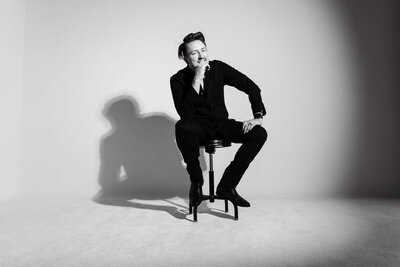

Browse by category
In the world of performance, the director gives “notes” which include specific, actionable tips for the performers.
Musings and dispatches about creativity, storytelling, and finding more meaning as a public speaker.
A podcast with storytellers, public speakers, and performers about the art and science of saying something.
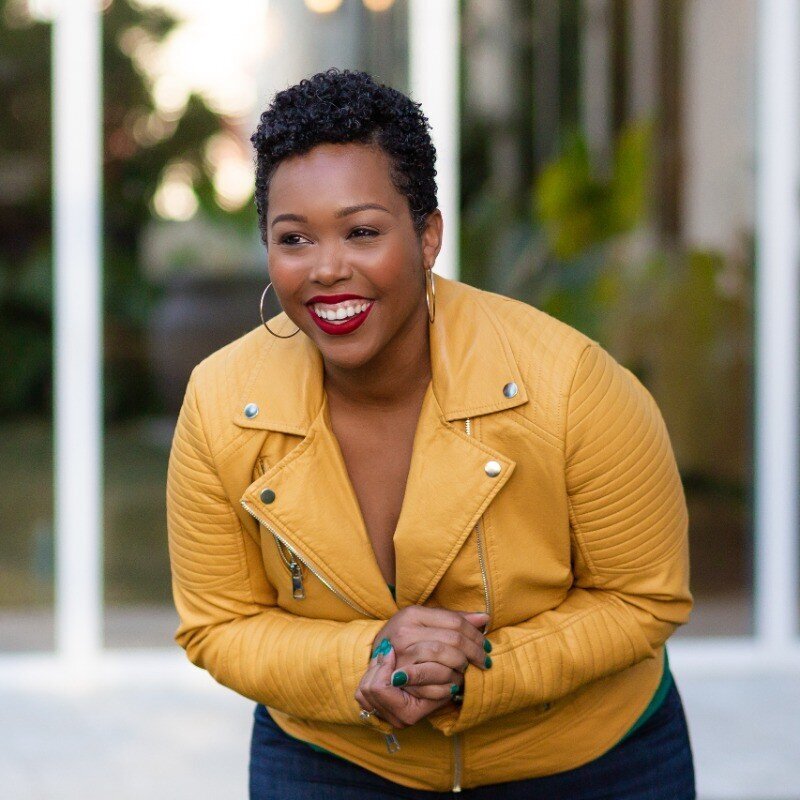



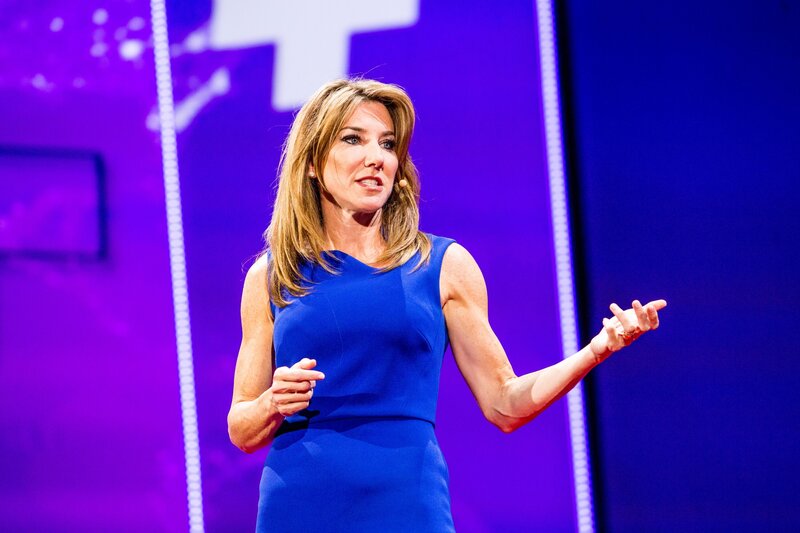



"Mike helped me create the signature keynote I'd been dreaming of giving. He was so skillful, artful, creative in helping me create a #mikedropmoment."




“He should have charged me 5x as much because the VALUE I received was so astounding!”
“Working with Mike made me more compelling, more motivational, more relatable, and more myself”
WORD ON THE STREET
— Erin King, Bestselling Author & Top-Ranked Keynote Speaker
— Tiffany Lanier, Change and wellbeing keynote speaker
— Laura Gassner Otting, bestselling author and TEDx speaker
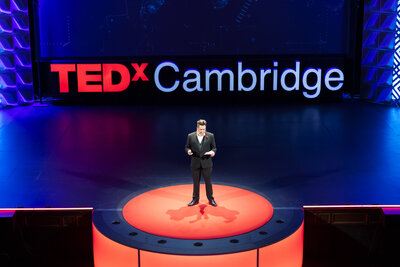

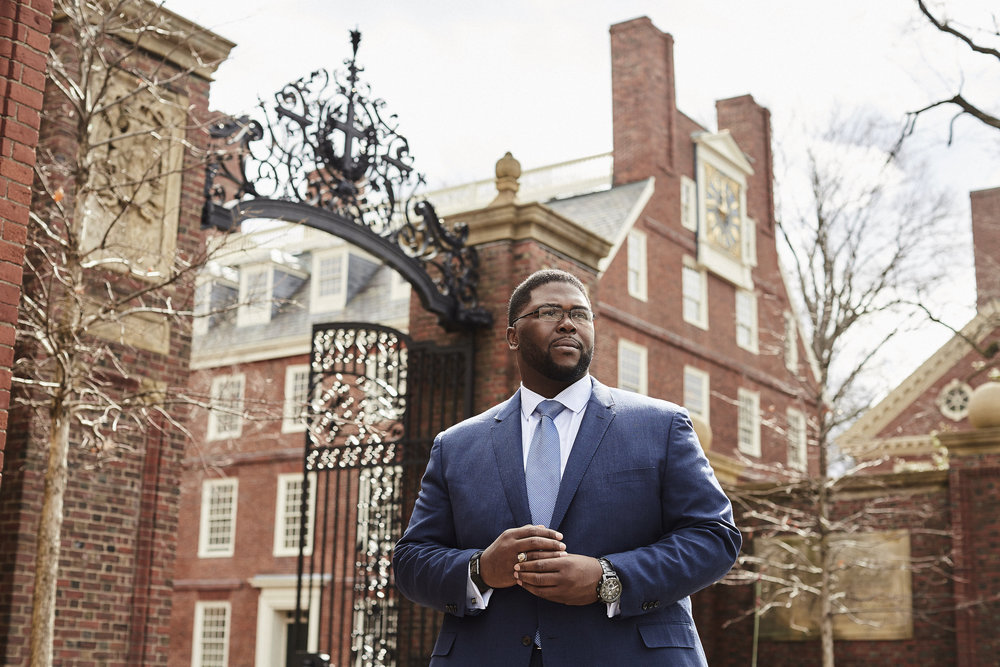

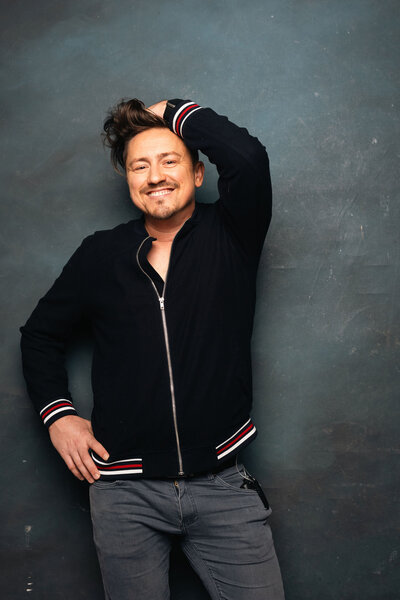
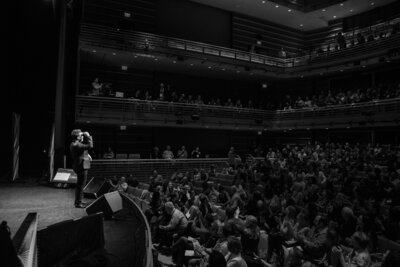

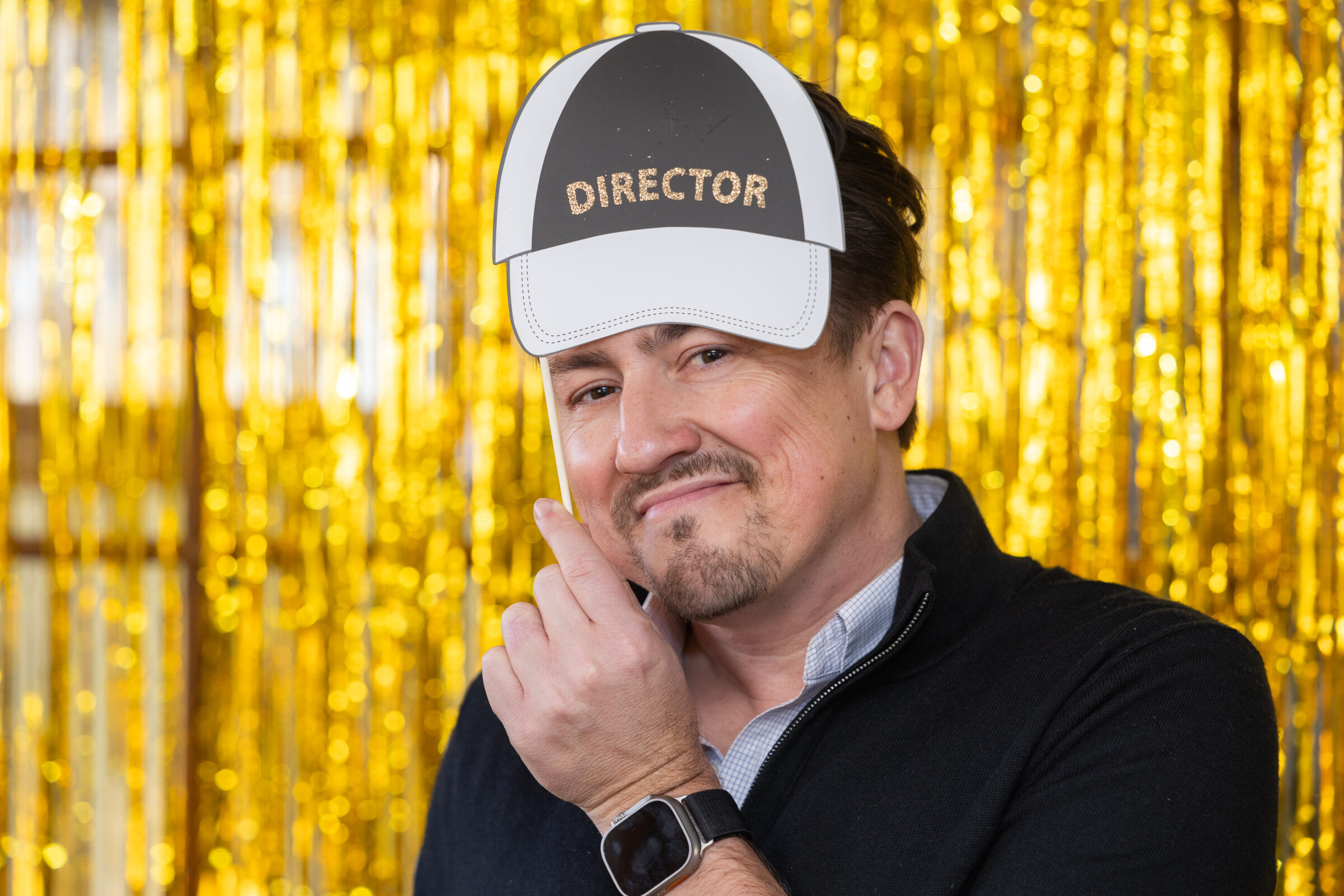
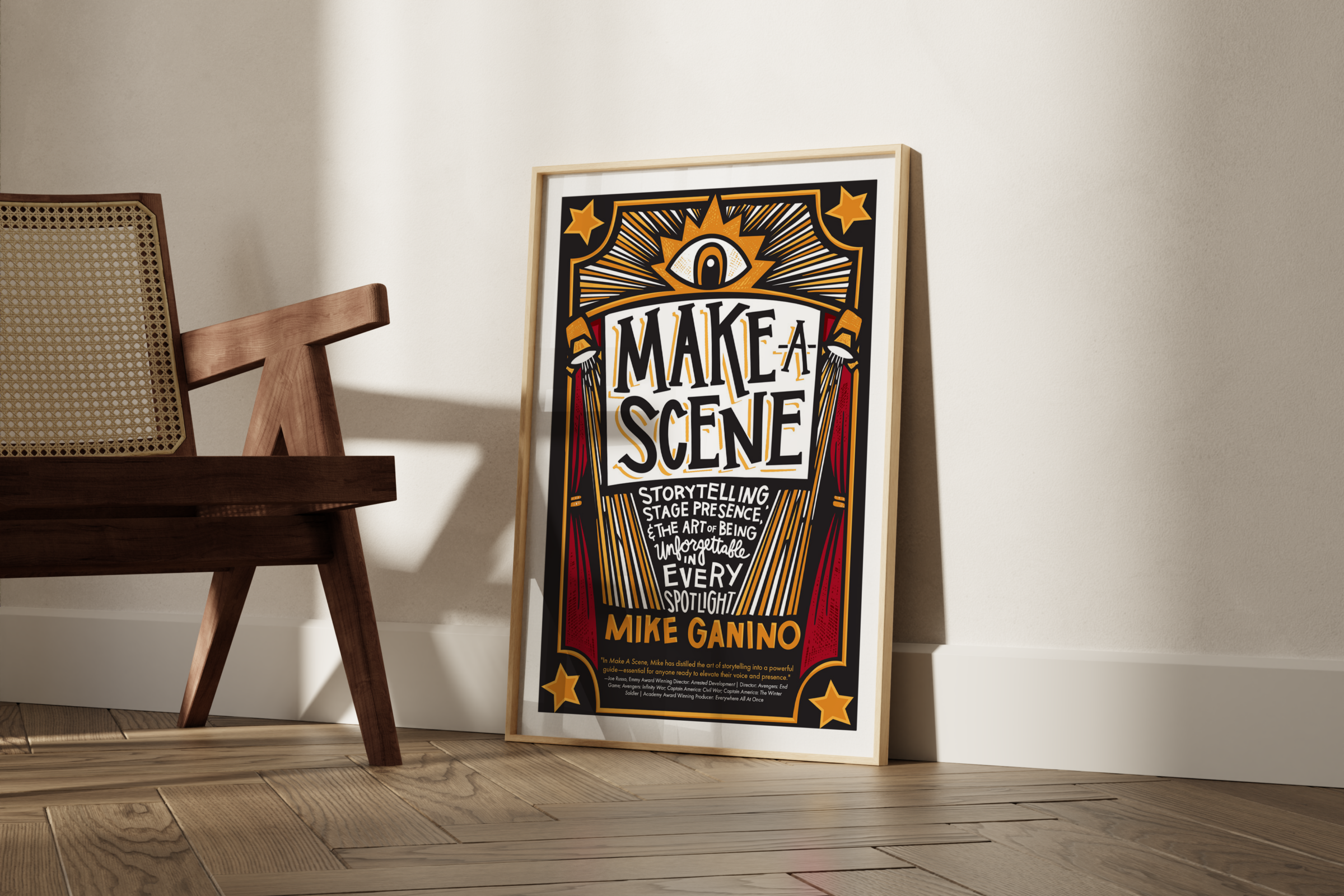
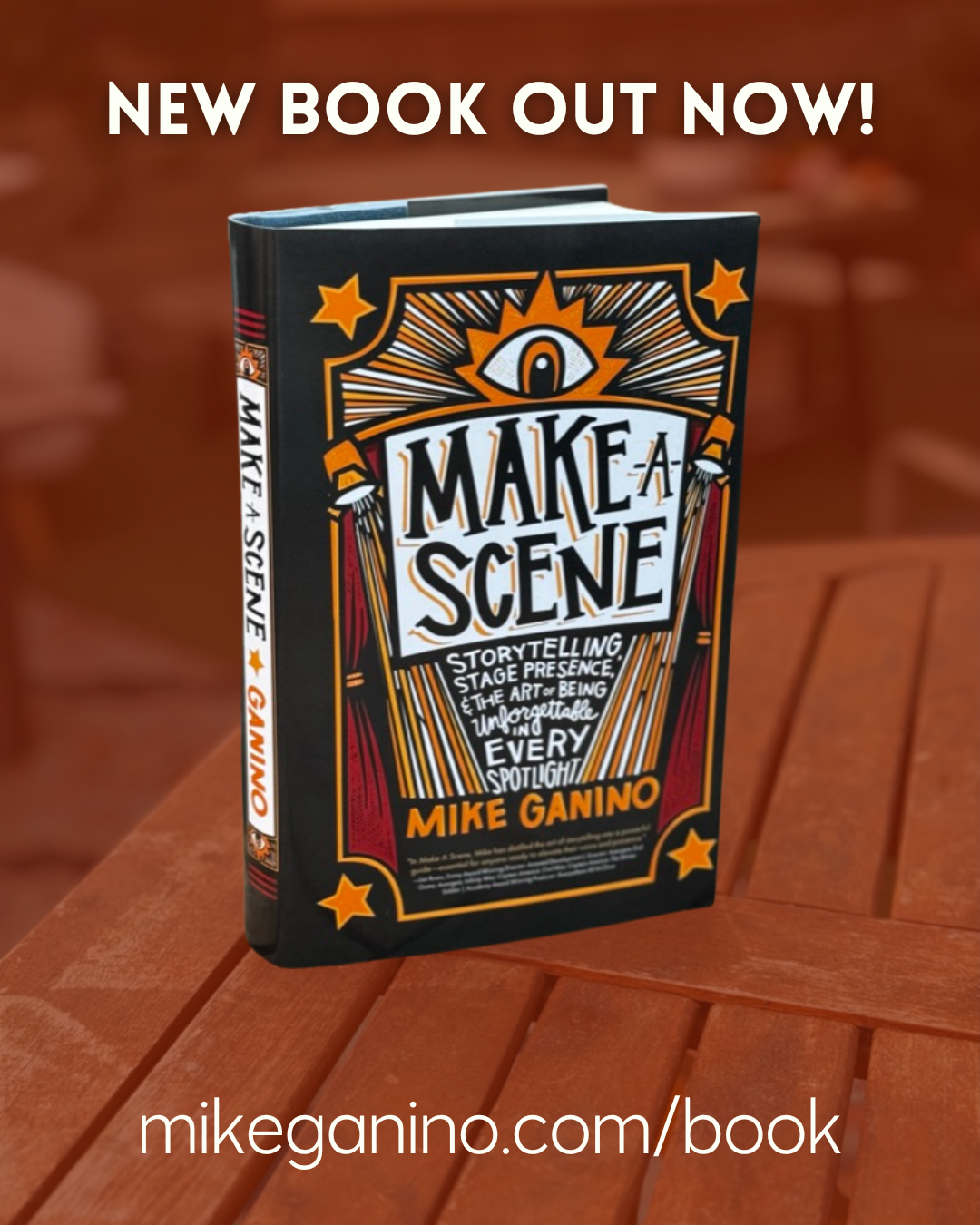
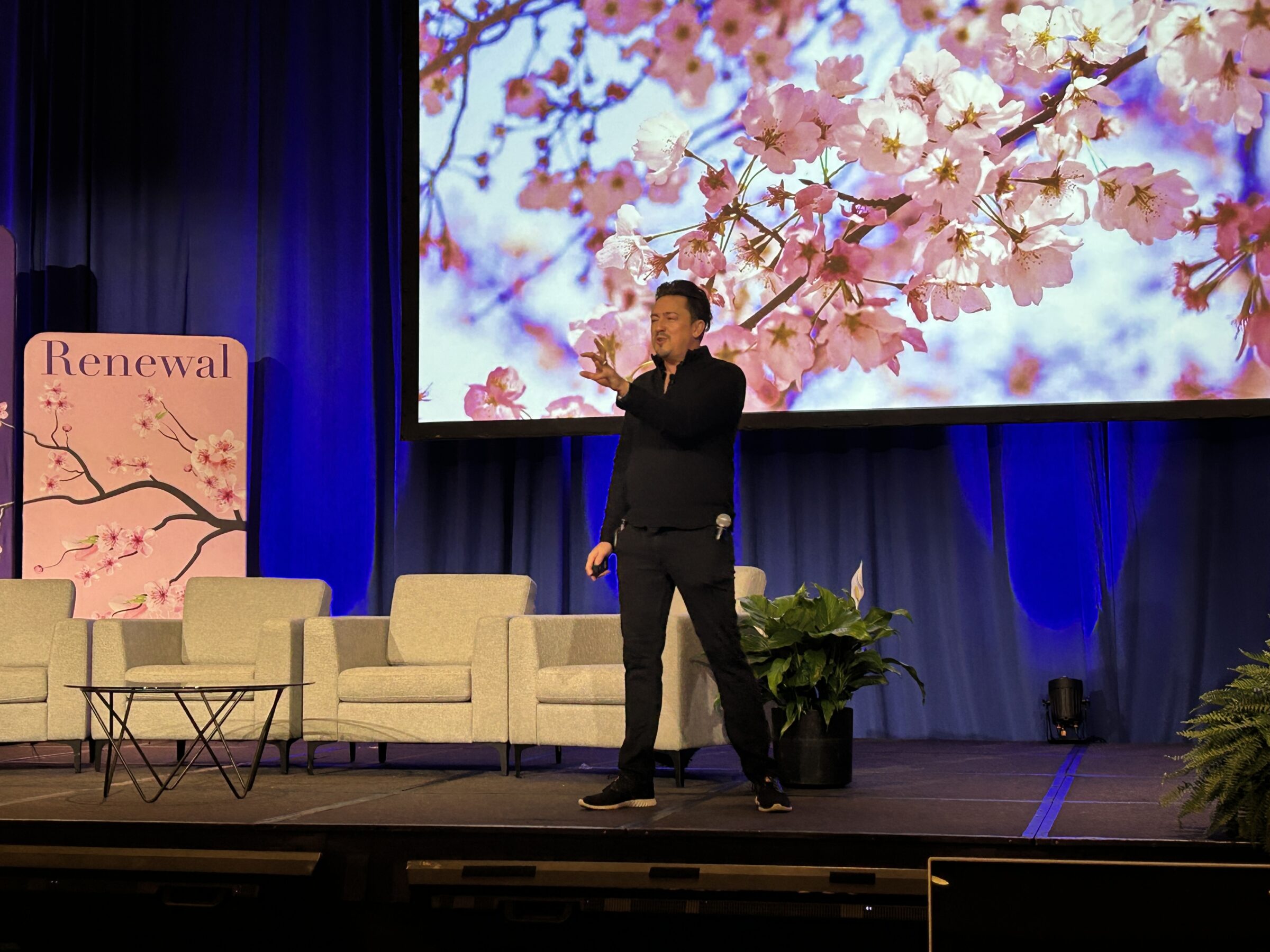
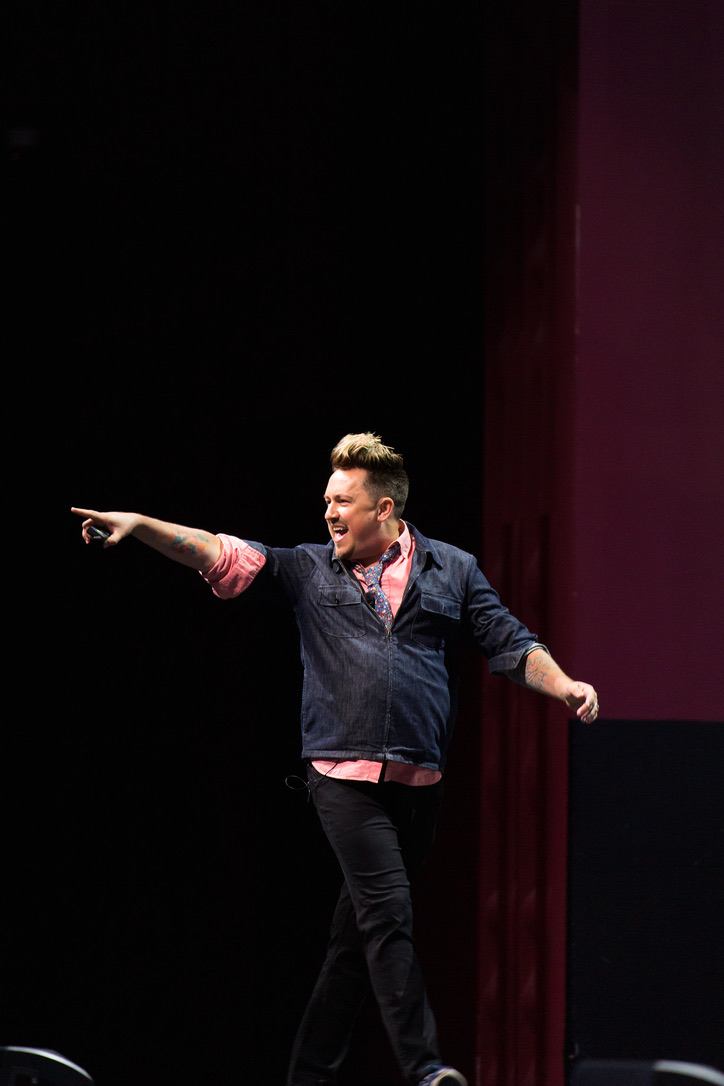
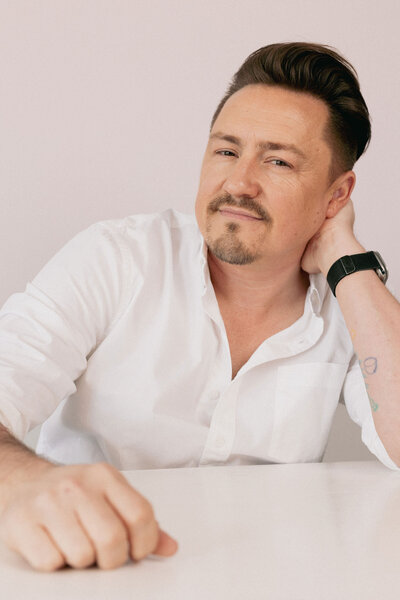


+ Show / Hide Comments
Share to: